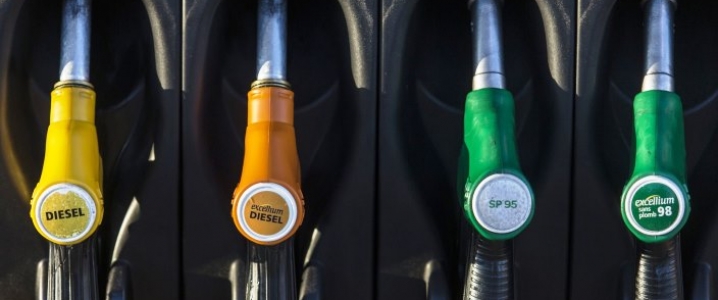You probably have noticed that gasoline prices are again on the rise. Predictably, I have already seen stories arguing about President Trump’s culpability in this current price rise.
It never fails that when gasoline prices decline, a President and his allies are quick to take credit. And when prices rise, the opposition party is ready to cast blame. After all, this must be someone’s fault.
In fact, it’s usually never quite that simple. An argument that I laid out in my book Power Plays was that a sitting President’s policies rarely have an impact on gasoline prices, or on energy production in the short-term.
This is pretty clear if you look at the energy polices of Presidents since President Nixon.
Delayed Impacts
During the Nixon Administration, most Americans grasped that energy security was slipping away from us, as oil exports were increasingly controlled by OPEC. In October 1973, America’s psyche was jolted when the Arab members of OPEC announced an oil embargo against the U.S. The embargo was ultimately expanded to a number of other countries, and the result was a rapid quadrupling in the price of oil.
The Nixon Administration responded with Project Independence, the stated goal of which was energy independence for the U.S. by 1980. But President Nixon also authorized the Trans-Alaska Pipeline by signing legislation that cleared away legal challenges from those opposed to the pipeline.
Many Nixon initiatives had long-lasting impact, but not much of it was immediate. The Trans-Alaska Pipeline would have a huge impact — under President Carter. The Carter Administration had a very active energy policy, but oil production starting to climb during Carter’s term primarily because oil began to flow through the Alaska Pipeline.
Related: Oil Kingdom In Crisis: Saudi Royal Family Rift Turns Violent
Time and time again, the energy policies of one President had the biggest impact under the following president. The biofuel mandates passed by the Bush Administration in 2005 delivered their greatest gains during the Obama Administration. In turn, the Obama Administration’s renewable energy policies are delivering their greatest gains under President Trump.
The Limits of Government Intervention
But more often than not, changes in oil production and gasoline prices have little to do with presidential policies. I have noted the irony that President Bush, generally viewed as a friend to the oil and gas industry, presided over eight straight years of declining oil production.
On the other hand, President Obama often took an antagonistic position toward the fossil fuel industry. The Obama Administration blocked pipelines, banned offshore drilling in the Arctic and parts of the Atlantic, and placed additional rules and regulations on the fossil fuel industries.
Yet oil production rose during Obama’s presidency at the fastest rate in the 150-year history of the U.S. oil industry. The previous record for U.S. natural gas production was shattered during Obama’s second term.
President Obama mentioned record oil production many times in campaign speeches and State of the Union addresses, but let’s be clear. The production increases for oil and natural gas in the U.S. were not the result of President Obama’s energy policies. He just happened to be in office as the shale oil and gas boom accelerated.
Thank the Frackers
This bonanza of oil and gas was actually created by shale pioneers like George Mitchell, Harold Hamm and Aubrey McClendon. During the Bush Administration, these men were busy combining hydraulic fracturing with horizontal drilling. Their efforts were aided by high oil and natural gas prices, not by government policies.
These men were the primary reason for the oil and gas production renaissance under President Obama. They will be the primary reason for further gains under President Trump.
As far as President Trump’s policies go, they should improve the economics for U.S. oil and natural gas producers. But since projects take multiple years to plan and complete, the differential between the status quo and the new policies won’t be felt for a few years. But if history is a guide, then the next President will take credit for any improvements that occur.
But, back to gasoline prices. If President Trump isn’t responsible, who is?
Related: Will Saudi Arabia Listen To U.S. Demands For More Oil?
In late 2016, OPEC and Russia agreed to cooperate and reduce oil production by a total of about 1.8 million barrels per day. They have largely stuck to that agreement, and in turn global crude oil inventories have come down. As inventories have come down, the price of oil has risen. That, in turn, has resulted in higher gasoline prices.
It is possible that President Trump could exacerbate this situation with additional sanctions on Venezuela or Iran, but OPEC and Russia would likely raise production to offset shortfalls by those countries.
So don’t blame President Trump for higher gasoline prices. Also don’t credit him for higher oil production this year. While his policies might have some minuscule incremental impact during his current term, you can really thank Harold Hamm.
By Robert Rapier
More Top Reads From Oilprice.com:
- Elon Musk Survives Attempted Coup
- The Soccer Player Saving Egypt’s Energy Sector
- New Technology Could Wipe Out Trillions In Fossil Fuel Investment


















